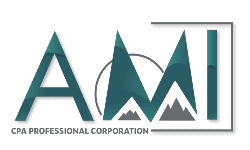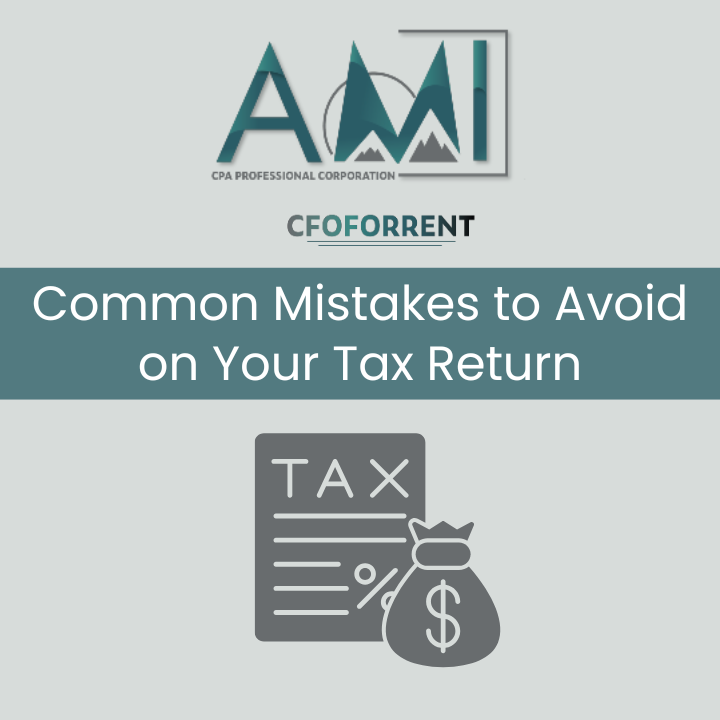Filing your taxes can feel overwhelming, especially with the changing rules in Ontario. Whether filing as an individual, a business owner, or a freelancer, even minor errors can lead to delays, audits, or missed refunds.
To help you file accurately and maximize your return, here are the most common tax mistakes and how to avoid them.
Missing Deadlines & Penalties
Common Mistake:
Filing late is a common mistake during tax season. Canada Revenue can charge late penalties, which are 5% of your balance and an additional 1% for every month past the due date, up to a maximum of 12 months. These penalties can significantly reduce your potential refund or even lead to additional payments.
April 30 is the tax filing deadline for most taxpayers, and it’s June 15 if you’re self-employed. If you owe money to the CRA, you must pay the amount in full by April 30, or interest charges will begin accumulating on the unpaid amount.
How to Avoid:
Set calendar reminders for key dates. If you owe money, pay by the deadline to avoid a 5% late filing penalty and interest.
Incorrect or Missing Personal Information
Common Mistake:
Keep the CRA updated regarding your personal information, including your address, phone number, marital status, and any children you care for. Incorrect or missing information is not critical; however, outdated information can prevent you from receiving certain government benefits such as the Canada Child Benefit (CCB) and GST/HST tax credit.
How to Avoid:
Double-check all personal details before submitting. Update the Canada Revenue Agency (CRA) if you’ve changed any information, such as your address, phone number, or if there are changes in the family dynamic.
Overlooking Deductions & Credits
Common Missed Opportunities in Ontario:
Many deductions and credits can save you money and give you tax breaks. By claiming all eligible deductions, you can significantly reduce your tax liability and increase your potential refund.
- Ontario Trillium Benefit (OTB) – Low-income energy/property tax relief.
- Medical Expense Tax Credit – Includes premiums, prescriptions, and travel.
- Home Office Expenses – If you worked remotely (simplified or detailed).
- RRSP Contributions – Missing deductions for prior-year contributions.
- Moving expenses for a business or starting a new job in a new location.
- Tax credit when purchasing a new home (First-Time Home Buyers’ Tax Credit (HBTC).
How to Avoid:
Review the CRA’s list of eligible deductions. Use tax software or book a consultation with A.M.I. CPA professional accounting team who are happy to help you navigate the complexities of taxes and finances.
Not Reporting All Income
Common Mistake:
You must report all your income streams on your tax return. You can learn more about what income is taxable from the CRA website. Failing to report any of these sources can lead to penalties and audits.
Here are a few examples.
- Tips and gratuities
- Rental income earned from an Airbnb or a secondary property
- Profit is from selling investments, such as stocks, bonds, and cryptocurrencies.
- Income from short-term contracts, freelance work, or other temporary work known as the gig economy, such as Uber, DoorDash, and Skip the Dishes
- Income earned from operating an e-commerce site, selling crafts on Etsy, or providing freelance tutoring.
- Scholarships, bursaries, or fellowships
How to Avoid:
Keep records of all income sources besides your full-time job, even if no T4/T5 was issued. Be sure to report any U.S. investments.

Math Errors & Filing the Wrong Forms
Common Mistake:
Anyone can make a math error when filing a tax return, but it can delay processing any available refund. Generally, the CRA will identify small errors and make adjustments on the notice of assessment. If the errors or wrong forms are noticeable, it may prompt the CRA to conduct an audit.
How to Avoid:
Use a certified tax software (e.g., TurboTax, Wealthsimple Tax). If filing paper returns, download the latest forms from the CRA.
A.M.I. offers a Secure Client Portal for sending or receiving important tax information and documents. As mentioned above, the team at A.M.I. can answer any questions regarding filing your tax return.
When You Need a Professional
Consulting a Tax Professional is a good decision if you have a complex return, as self-filing may cause unwanted errors and missing information that is important to the outcome. When you have multiple income sources, investments, rent properties or any cross-border tax issues, or if you have not kept all the proper receipts in the event of an audit, it is advisable to seek the advice of an expert in taxation planning.
Our dedicated tax strategy team at A.M.I. CPA Professional Corporation can guide you through the complexities of avoiding any mistakes on your tax return and help you seize every opportunity to enhance cash flow and reduce tax liabilities. Let’s ensure your money works smarter, not harder.


